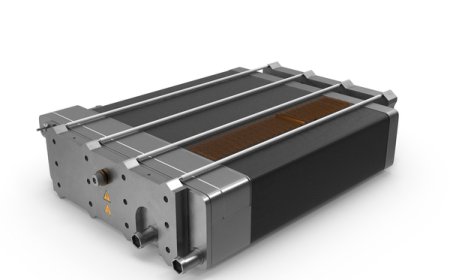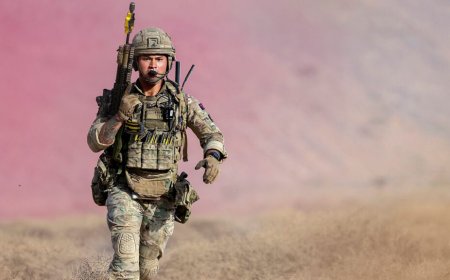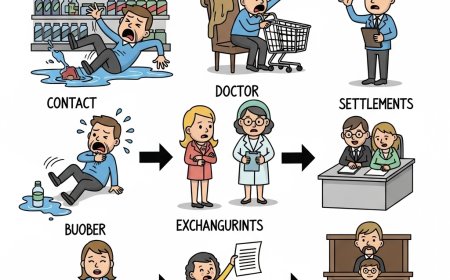How to Prove Your Relationship for Canada Sponsorship: Documents You’ll Need
If you're planning to bring your loved ones to Canada under the Canada Relatives sponsorship program, one of the most critical parts of the application is proving your relationship. Immigration, Refugees and Citizenship Canada (IRCC) has stringent requirements to ensure the sponsorship is genuine. Whether you're sponsoring a spouse, common-law partner, parent, grandparent, or dependent child, having the correct documents is essential to a successful application.

If you're planning to bring your loved ones to Canada under the Canada Relatives sponsorship program, one of the most critical parts of the application is proving your relationship. Immigration, Refugees and Citizenship Canada (IRCC) has stringent requirements to ensure the sponsorship is genuine. Whether you're sponsoring a spouse, common-law partner, parent, grandparent, or dependent child, having the correct documents is essential to a successful application.
In this blog, we'll walk you through the exact documents youll need to prove your relationship under the Canada Relatives sponsorship pathway.
1. Proof of Relationship for Canada Relatives Sponsorship What IRCC Looks For
The IRCC will assess the authenticity and nature of your relationship. For each category of relatives spouses, parents, children, or other eligible family members the required documents will differ. However, the goal remains the same: to verify that your relationship is real, ongoing, and meets immigration requirements.
Its crucial to understand which documents prove different types of relationships. Lets explore them by category.
2. Marriage Certificate and Photos Essential for Spousal Canada Relatives Sponsorship
If you're sponsoring a spouse under the Canada Relatives sponsorship program, the foundation of your proof is your marriage certificate. This document must be legally recognized both in the country where the marriage took place and in Canada.
In addition, you should include:
-
Wedding and post-wedding photos
-
Invitations, guest lists, and receipts from the ceremony
-
Joint lease or mortgage agreements
-
Birth certificates of any children together
-
Communication history (emails, chats, call logs)
These documents help demonstrate that your marriage is not just legal, but also genuine.
3. Proof of Cohabitation Key for Common-law or Conjugal Partners
For applicants sponsoring a common-law partner, you'll need to show that youve lived together for at least 12 consecutive months. Documents may include:
-
Joint rental or ownership agreements
-
Utility bills with both names
-
Joint bank account statements
-
Affidavits from friends or family confirming your relationship
-
Photos and travel history together
This is particularly important under Canada Relatives sponsorship to differentiate between a real partnership and one created just for immigration purposes.
4. Birth Certificates and Adoption Papers For Dependent Child Sponsorship
When sponsoring a dependent child, you must prove that:
-
You are the biological or adoptive parent
-
The child is under 22 years of age and unmarried
Youll need:
-
Childs birth certificate naming you as a parent
-
Legal adoption documents (if applicable)
-
School records or medical reports
-
Passport-sized photos of the child
These documents establish both the legal and biological relationship required under the Canada Relatives sponsorship program.
5. Family Registry, Birth Records, and ID Proof For Parents and Grandparents
Sponsoring parents or grandparents involves more than just submitting their passports. Key documentation includes:
-
Your own birth certificate listing your parents names
-
Official government family registry (if your country uses one)
-
Marriage certificate of your parents
-
Proof of ongoing communication (calls, messages, etc.)
-
Photos together over the years
This documentation is critical under the Canada Relatives sponsorship scheme to establish a valid parental relationship.
6. Proof of Financial Support A Requirement Across All Relationships
While emotional and legal connections are necessary, you must also demonstrate your financial ability to support the relative you're sponsoring. This includes:
-
Notice of Assessment (NOA) for the past 3 years
-
Employment letters or pay stubs
-
Bank account statements
-
Proof of assets (property ownership, savings, etc.)
For some streams, especially when sponsoring parents or grandparents, meeting the Minimum Necessary Income (MNI) is mandatory under the Canada Relatives sponsorship process.
7. Photos, Chat Logs, and Travel Itineraries Supporting Documents That Matter
Beyond the basic requirements, IRCC encourages applicants to include additional documents that show the continuity and depth of the relationship. These include:
-
Screenshots of WhatsApp, Messenger, or other platforms
-
Flight tickets from visits to each other
-
Holiday photos and gifts sent
-
Joint insurance policies or wills
These types of supporting documents often make the difference when officers are assessing the sincerity of a relationship.
8. Translations and Certified Copies Dont Miss This Step
Any document not in English or French must be:
-
Accompanied by a certified translation
-
Include the translators affidavit
-
Submitted with a copy of the original document
Failure to follow this step can lead to delays or rejections in your Canada Relatives sponsorship application.
Final Thoughts
When applying under the Canada Relatives sponsorship program, your strongest asset is proper documentation. Be honest, thorough, and organized. Compile a complete set of evidence that convincingly shows IRCC that your relationship is genuine and eligible under Canadian immigration law.
Remember: if you're ever in doubt, consult an immigration lawyer or authorized consultant. They can guide you to present your documents in the most effective way possible ensuring you bring your loved ones to Canada without unnecessary delays.







































